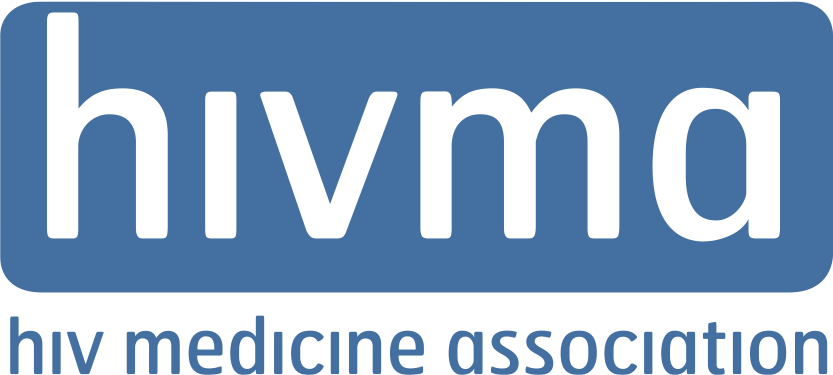January 25, 2019
Centers for Medicare & Medicaid Services
Department of Health and Human Services
Attention: CMS-4180-P
P.O. Box 8013
Baltimore, MD 21244-8013
Re: Comments to Proposed Rule Modernizing Part D and Medicare Advantage
To Whom It May Concern:
I am writing on behalf of the HIV Medicine Association (HIVMA) to share our concerns regarding the CMS proposed rule “Modernizing Part D and Medicare Advantage.” HIVMA represents more than 5,000 physicians, researchers, scientists and other healthcare professionals who work on the frontlines of the HIV epidemic providing prevention and care and conducting research in communities across the country.
HIVMA recognizes and supports efforts to negotiate lower drug prices and reduce out-of-pocket costs for Medicare beneficiaries. However, we are concerned that the proposed rule would undermine patient care by eroding Part D policies that were put in place by CMS to negate insurer discriminatory practices. Lower drug prices must not come at the expense of poorer health outcomes for Medicare beneficiaries as one of the goals of reducing is to expand and improve access to high quality health care and treatment.
The HIV prevention and treatment landscape and standard of care have significantly evolved since the Medicare Part D program’s inception. We have seen the development of newer antiretroviral medications that achieve more rapid and durable suppression of HIV, have significantly fewer side effects, and improve medication adherence through markedly reduced pill burden. The current standard-of-care conclusively supported by scientific evidence is to start individuals living with HIV on treatment as soon after diagnosis as possible with the most effective, best-tolerated regimens to achieve rapid suppression of the virus and maintain this suppression for life. Early and sustained viral suppression not only optimizes health outcomes for individuals living with HIV, but it also has the added benefit of stopping transmission of the virus. . In addition, in 2012 the Food and Drug Administration approved the first biomedical intervention using an antiretroviral drug for an intervention called Pre-Exposure Prophylaxis or PrEP. PrEP is highly effective in preventing acquisition of HIV. Of note, in November 2018, PrEP received a draft Grade “A” recommendation from the U.S. Preventive Services Task Force.
Expanding the Use of Step Therapy and Prior Authorization in the Antiretroviral Class Will Harm Medicare beneficiaries. (42 CFR § 423.120(b)(2)(vi)(C))
HIVMA strongly opposes eliminating existing protections that have prevented application of step therapy and prior authorization for the antiretroviral drug class. The need for individualized treatment for individuals with HIV continues to be high and HIV treatment regimens remain uniquely complex, involving combinations of multiple medications. While this approach is important for all patients with HIV, individualized treatment is critical for Medicare beneficiaries with HIV who qualify for the program because they have been deemed medically disabled or are 65 years or older. In either case, they are likely to have been living with HIV for many years and to have fewer treatment options available because of co-occurring conditions and the development of resistance to some antiretroviral drugs.
Requiring patients to experience virologic failure or a serious adverse event through a process known as Step Therapy or putting in place access barriers such as Prior Authorization before they have access to a regimen recommended by their provider will have serious negative effects on individual and public health. These practices also will result in additional costs to the healthcare system and to Medicare due to increased administrative burden for providers and greater utilization of higher cost interventions such as hospitalization due to the development of opportunistic infections or other treatment complications.[1]
The proposed expansion of utilization management to the antiretroviral drug class is inconsistent with the federal HIV treatment guidelines[2] that are cited in the regulation itself (currently at 42 CFR §423.120(b)(2)(vi)(C) and re-designated in the proposed rule to §423.120(b)(2)(vi)(F)). Because their use is not justified by the HIV treatment guidelines, prior authorization and step therapy are not currently applied to the antiretroviral class at either treatment initiation or for individuals already on a treatment regimen. The Medicare Prescription Drug Benefit Manual, Chapter 6, Section 30.2.5 currently states that: “For HIV/AIDS drugs, utilization management tools such as prior authorization and step therapy are generally not employed in widely used, best practice formulary models.” As previously noted, the HIV treatment landscape and standard-of-care have not changed such as to warrant removing this important protection for Medicare beneficiaries.
People living with and at high risk for HIV depend on access to single-source brand name medications that for the most part do not have acceptable generic equivalents. Allowing utilization management to be applied by Part D plans without the appropriate expertise to make HIV treatment decisions is dangerous to patients and to public health and will not be cost effective. CMS is right to acknowledge in the preamble to the proposed rule the narrow indications and complex clinical criteria could limit the ability of Part D plans to do “significant management.” Given the ongoing complexity of HIV treatment, now is not the time to lift the protections barring step therapy and prior authorization for the antiretroviral drug class.
Additionally, we are concerned that the proposed language in § 423.120(b)(2)(vi)(C) allowing prior authorization to be used “to confirm use intended for a protected class indication” could have unintended consequences in implementation. There is currently only one antiretroviral medication approved for the prevention of HIV or PrEP, a use that is covered by protected class indication as it is an antiretroviral drug approved by the FDA for both HIV treatment and prevention. We urge CMS to develop sub-regulatory guidance to ensure that indications of antiretrovirals for both the treatment and prevention of HIV are protected to prevent Part D plans from denying access to the antiretroviral used for PrEP when it is prescribed for this indication.
Finally, we are strongly opposed to the CMS proposal to permit step therapy and prior authorization for patients stable on existing treatments, across all six protected classes. It is counter to good and effective medical practice to require patients with chronic and/or life-threatening conditions like HIV, schizophrenia, bi-polar disorder or cancer, who are stable on a medication regimen to switch to lower to cost medications. Lower drug prices should never come at the cost of optimal patient care
Limiting Coverage for a New Formulation of an Existing Drug or Biologic without a Unique Route of Administration Could Reduce Costs without Compromising Care with Additional Safeguards for Safety, Efficacy and Adherence. (Proposed 42 CFR § 423.120(b)(2)(vi)(D))
HIVMA is supportive of curtailing the practice of “ever-greening” which allows drug companies to prolong market monopolies; however, we urge that additional safeguards be added to ensure coverage of scientifically validated novel formulations of existing drugs and biologics.
Under existing regulations, Part D plans are currently allowed to exclude newer, potentially higher cost versions of older drugs in protected drug classes with the same active ingredient or moiety or extended-release products when the immediate-release product is included. The proposed rule aims to disincentivize the commercial withdrawal of older products as a strategy to preserve and extend innovator drug products’ monopolies in the protected classes but maintains exceptions for newer versions of older drugs that provide a unique route of administration. This is critical to ensure access to medications that could address important treatment issues, such as adherence.
Newer formulations of older drug or biologic products – including those with similar routes of administration, such as oral coformulations and single-tablet regimens – can be clinically important additions to standards of care, including reductions in pill burden. Our support for this provision is therefore dependent on evidence-based determinations conducted by CMS. Any new formulation of older drug or biologic products using the same route of administration should have significantly improved adherence, safety and/or efficacy, as determined in clinical trials or other scientifically sound prospective studies. We recommend that the language highlighted below be added to the proposed addition under 42 CFR 423.120(b)(2)(vi):
(D) In the case of a single-source drug or biological product for which the manufacturer introduces a new formulation with the same active ingredient or moiety that does not provide a unique route of administration or scientific evidence of superior adherence, safety and/or efficacy for CMS review.
Addressing Wholesale Acquisition Cost Price Increases Is Important but Cannot Come at the Expense of Patient Access to Critical Medicines. (Proposed 42 CFR § 423.120(b)(2)(vi)(E))
HIVMA supports efforts to reduce wholesale acquisition cost (WAC) price increases that exceed average increases in the consumer price index for all urban consumers (CPI-U). Antiretroviral drug manufacturers regularly take annual WAC price increases of 5% to 9%, which typically exceed annual CPI-U changes.[3] We recognize that these annual price increases are acutely felt by commercial payers and beneficiaries and that controlling price increases on drugs and biologics would provide Part D plans with greater leverage to negotiate rebates on products in the protected classes as well as disincentivize price increases for third-party payers across the health care system. However, we cannot support strategies that rein in drug prices by impeding access to all or substantially all commercially available antiretroviral drugs.
We urge CMS to consider other approaches including those that may require Congressional action, including requiring mandatory rebates for protected class drugs when annual drug prices increase higher than the CPI like the inflation penalty statutorily defined for Medicaid. The cost savings from the rebates could accrue to the Medicare trust fund and consumers. According to the HHS Office of the Inspector General, Medicaid rebates are, on average, three times higher than the privately negotiated rebates paid to Medicare Part D plans and far exceed the average 6% across all protected classes.[4]
Strengthening the Medicare Exception and Appeals Process and Ensuring HIV and Infectious Diseases Expertise Is Important to Ensure Patient Access to Critical Medicines.
If any provisions in this rule are finalized, the Medicare exceptions and appeal process must be enhanced to ensure that beneficiaries are aware of their rights and that they have expedited determination and exception processes when there is no alternative therapy available on the formulary. All HIV medications should automatically qualify for expedited review, similar to how regulations governing the Affordable Care Act Essential Health Benefits are interpreted (45 CFR § 156.122(c)(2)(ii)). The same prescription drug appeals process in place for access to non-formulary drugs should be applied to ensure beneficiaries access to clinically appropriate medication without treatment delays. In addition, clinical coverage decisions regarding appeals for antiretrovirals should be reviewed by infectious diseases or HIV experts and adhere to the federal HIV treatment guidelines. The importance of the appeals process in ensuring access to appropriate treatment underscores the importance of addressing current backlog of pending Medicare appeals.
We appreciate the opportunity to offer comments on this proposed rule that would adversely affect Medicare beneficiaries with HIV. We strongly urge CMS to reconsider this rule and instead work with HIV providers and other stakeholders to discuss strategies to lower drug costs and other health care expenditures without compromising patient care and outcomes. Please contact the HIVMA Executive Director Andrea Weddle at aweddle@hivma.org with questions regarding our comments.
Sincerely,

David Hardy, MD
Chair, HIVMA
[1] Studies have found that even when step therapy and prior authorization reduced pharmacy costs, emergency room and hospitalization costs increased. See, e.g., Rashad I. Carlton, “Review of Outcomes Associated with Formulary Restrictions: Focus on Step Therapy,” 2 American Journal of Pharmacy Benefits 50, 56–7 (2010).
[2] Department of Health and Human Services, Federal HIV/AIDS Practice Guidelines, http://aidsinfo.nih.gov/guidelines.
[3] See summary of price increases in Fair Pricing Coalition, “Open Letter to Manufacturers of HIV and Hepatitis Medications Opposing 2017 Price Increases,” (2016) available at https://fairpricingcoalition.org/2016/11/16/openletter/.
[4] HHS Office of the Inspector General, “Medicaid Rebates for Brand-Name Drugs Exceeded Part D Rebates by a Substantial Margin (2015), available at https://oig.hhs.gov/oei/reports/oei-03-13-00650.pdf.

